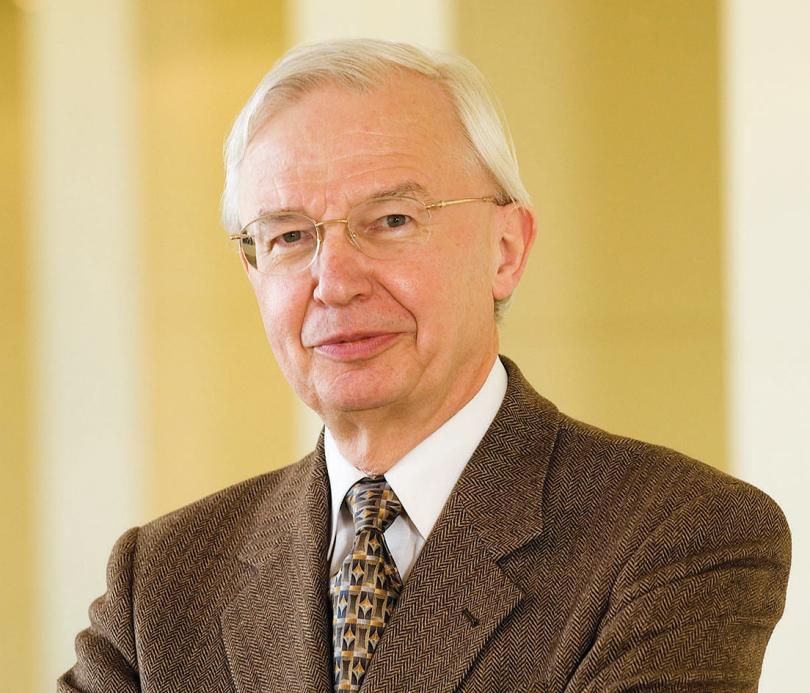Jean-Marie Pierre Lehn, Doctor of Science honoris causa

Professor Jean-Marie Pierre Lehn is a 1987 Nobel Chemistry Prize laureate. He received his bachelor’s degree in Chemistry from the University of Strasbourg, France, in 1960 and obtained his Ph.D. degree from the same University in 1963. Thence he worked in the laboratory of Nobel Chemistry laureate Professor Robert Burns Woodward at Harvard University. In 1966, Professor Lehn returned to Strasbourg and began his research in areas at the interface between organic and physical chemistry, later also taking a keen interest in biological processes. In 1970, Professor Lehn became Professor of Chemistry at the Université Louis Pasteur and in 1979 he was elected to the chair of Chemistry at the Collège de France in Paris.
In 1968, Professor Lehn’s research led to the fabrication of cage-like molecules that contain a cavity into which another chemical species of appropriate size and shape may be included, to form a “cryptate”. With this, he began his research into the chemical basis of “molecular recognition”, which also plays a fundamental role in biological processes. For the merit of these studies, Professor Lehn was conferred the Nobel Prize in Chemistry in 1987 together with D.J. Cram and C.J. Pedersen.
Professor Lehn’s work has pioneered a new field of chemistry which he named “supramolecular chemistry”, since it investigates the complex entities formed by the association of two or more chemical species held together by intermolecular forces, whereas traditional molecular chemistry emphasizes on characterizing molecules constructed of atoms linked by covalent bonds. His work has also led to the definition and development of “constitutional dynamic chemistry”, whose molecular or supramolecular entities are able to undergo reorganization in response to external stimuli. Such theory and concept fostered the emergence of “adaptive chemistry” that involves dynamic networks linking chemical entities, thereby opening the door to the chemistry of complex systems. On another frontier (of science), Professor Lehn has over the last 10 years discovered a substance capable of markedly increasing oxygen delivery to hypoxic tissues in vivo as well as to act on important biological signaling pathways. He has been working closely with Professor Claude Nicolau on the biological effects and potential therapeutic potential of this substance on many diseases (cancer, cardiovascular disease, and others).
Professor Lehn has to-date published more than 900 scientific papers. He has been a member of many academies and institutions and received numerous international honours and awards. Professor Lehn has also been conferred honorary doctoral degrees from many world-renowned universities such as the University of Oxford, the Royal Institute of Technology, Stockholm, Université Libre of Bruxelles, and Illinois Wesleyan University, just to name a few.
Professor Jean-Marie Pierre Lehn, laureate of the supreme award of Nobel Prize in Chemistry, has innovatively defined new research areas in chemistry and related disciplines. He has been unfailingly devoted to his academic faith and commitments, and made extraordinary contributions to human knowledge that inspired and stimulated his followers.





